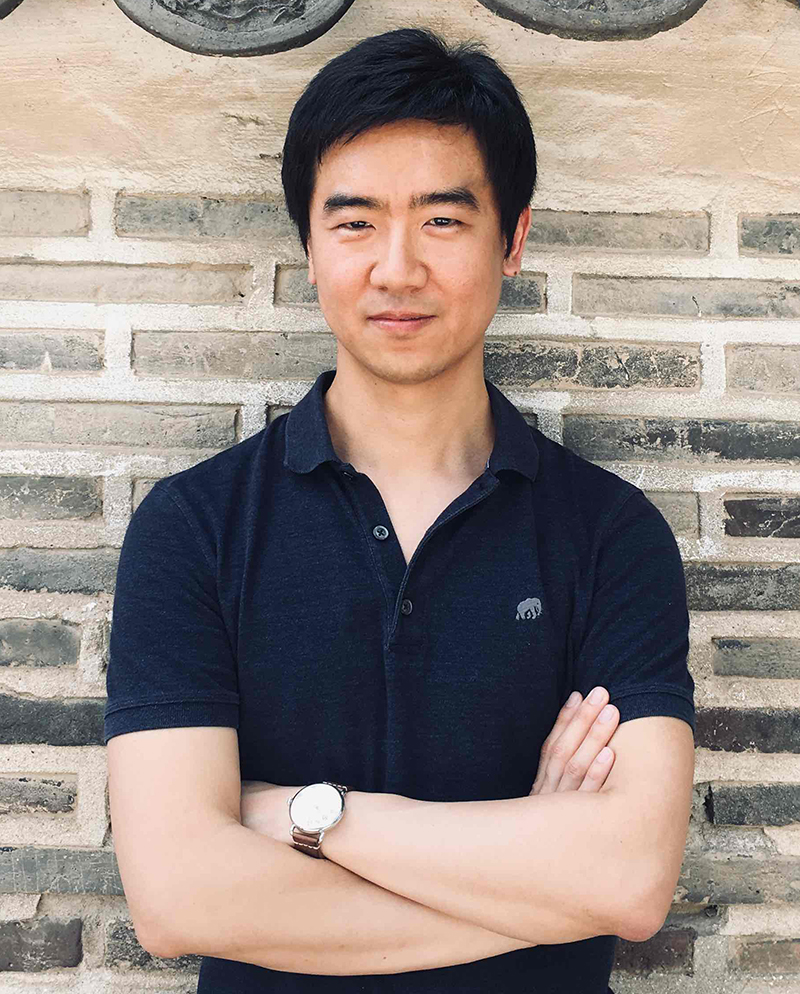Hun-Seok Kim receives CAREER Award to facilitate Internet of Things connectivity
Kim takes an interdisciplinary approach to tackle challenges in heterogeneous classes of energy-efficient and versatile communication systems.

 Enlarge
Enlarge
Prof. Hun-Seok Kim received an NSF CAREER award to support research in the Internet of Things (IoT) of the future, where massively deployed heterogeneous IoT devices are seamlessly interconnected with software defined radios and machine-learning based signal processing.
The research is expected to expedite and enable applications such as energy-harvesting and wirelessly-connected smart-dust devices, autonomous aerial and ground vehicles with ultra-reliable low latency communications, and intelligent automated factories with deep learning-assisted collaborative networks in highly congested channels.
The project is called “Heterogeneous Non-orthogonal Wireless Communications Enhanced by Unified SDR – Deep Learning Architectures.”
Enabling energy-efficient, ubiquitous connectivity is a critical task for the IoT. This project targets an orders-of-magnitude reduction in power consumption and complexity for wireless connectivity to realize ultra-low cost, ultra-small, disposable, and ubiquitous wireless Internet-of-Things devices.
Having as a goal completely energy-autonomous Internet-of-Things platforms, this program investigates new ultra-low power wireless connectivity solutions assisted by novel digital signal processor architectures optimized for software-defined radio processing and machine learning.
The interdisciplinary nature of the research spans a wide range of topics including digital communication, low power integrated circuits, machine learning, and processor architectures to explore cross-layer approaches that are indispensable to tackle challenges in heterogeneous classes of energy-efficient and versatile communication systems.
Kim’s broad research interests include: 1) Theory, System, Algorithm and Hardware Architecture for Digital Communication, Signal Processing, and Embedded Systems; 2) Internet of Things, 5G MIMO-OFDM, High-performance wireless communication systems, Ultra-low power wireless communication systems; 3) Software-Defined Radio, Computer Vision, Image Processing, Machine Learning, Software-Defined Networking, and 4) Integrated Circuits and VLSI architecture for Ultra-Low Power / Ultra-High Performance Systems.
He is a recipient of the 2018 Defense Advanced Research Projects Agency (DARPA) Young Faculty Award, and has 19 U.S. patents.
Additional Information
According to NSF, “The Faculty Early Career Development (CAREER) Program is a Foundation-wide activity that offers the National Science Foundation’s most prestigious awards in support of early-career faculty who have the potential to serve as academic role models in research and education and to lead advances in the mission of their department or organization.”
Prof. Kim’s award is in the NSF Division of Electrical, Communications and Cyber Systems
 MENU
MENU 
